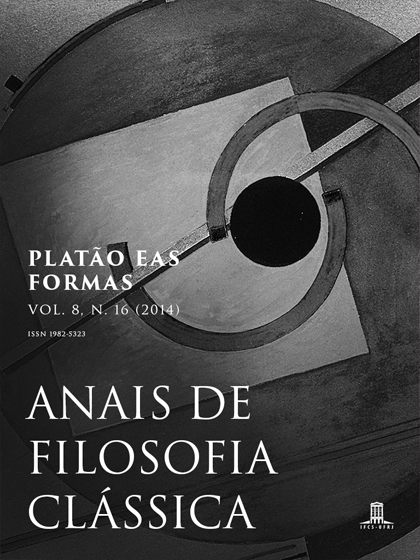Eros e Thanatos
DOI:
https://doi.org/10.47661/afcl.v8i16.3136Keywords:
love, death, soul's immortality, OrphismAbstract
The main aim of this article is to prove that there is not an absolute unity between Plato's dialogues. He was a metaphysician in some themes and a non-metaphysician in others. Therefore, in his dialogue Phedon he gives a metaphysical explanation about death and the soul's immortality, but in another dialogue Phedro he assumes that carnal passion is an ultimate form of love.
References
BERNABÉ, Alberto. Platão e o orfismo: diálogos entre religião e filosofia. Trad. Denys Garcia Xavier. São Paulo: Annablume, 2011.
PLATÃO. Fedro. Trad. Carlos Alberto Nunes. Belém: ed.UFPA, 2011
. Fédon. Trad. Carlos Alberto Nunes. Belém: ed.UFPA, 2011
RORTY, Richard. “A world without substances or essences”. Philosophy and Social Hope. Londres: Penguin, 1999.
. “Ethics without principles”. Philosophy and Social Hope. Londres: Penguin, 1999.


